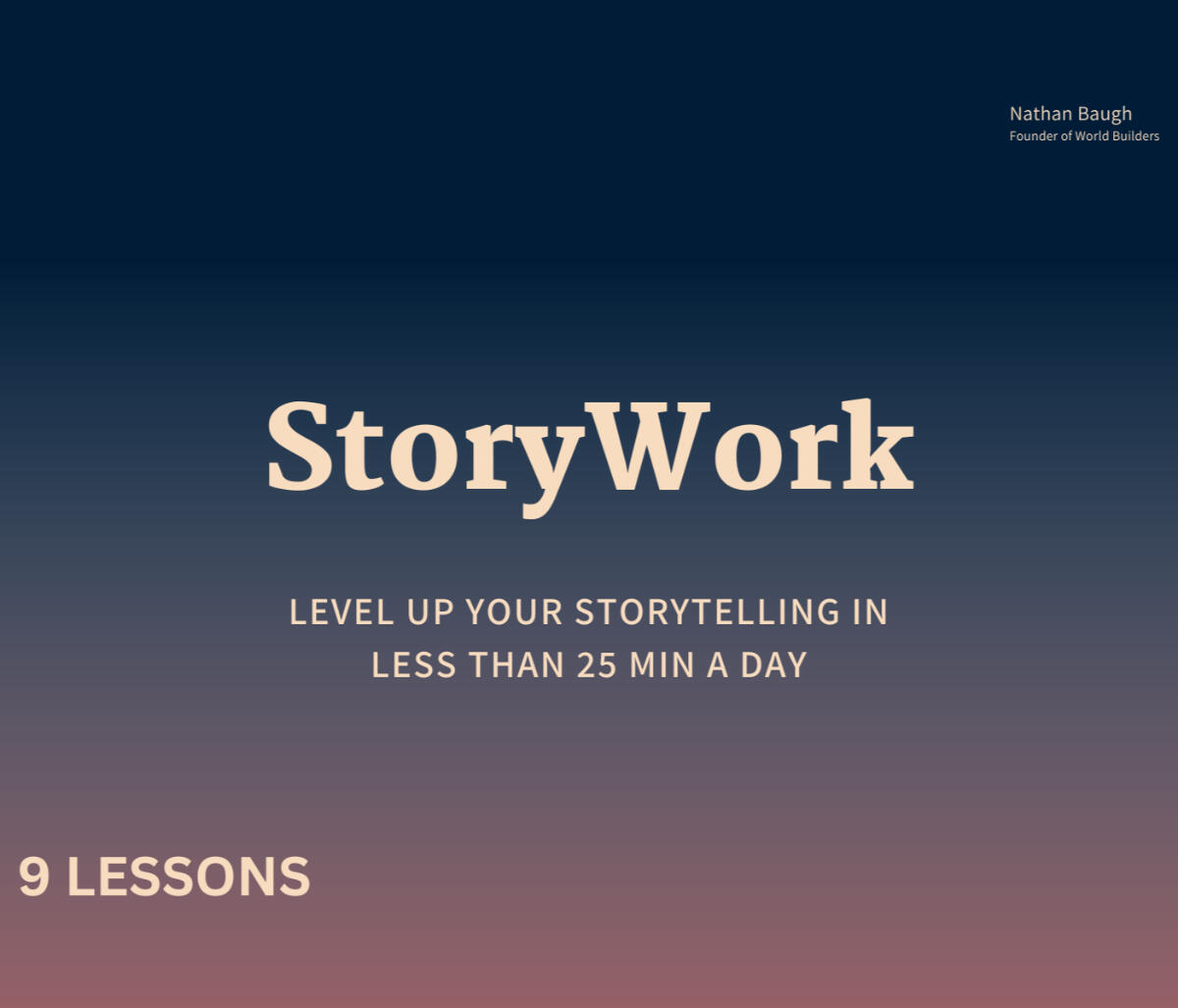- World Builders
- Posts
- War stories
War stories
3 powerful ideas from Morgan Housel to better leverage stories
Hey – Nathan here. Your opening decides if your audience sticks around for the rest of your story. Same goes for a book, presentation, or pitch.
So each week, I’ll give you the opening line from a well-known book or movie. Reply with your best guess on where it's from. Over time, you’ll pick up on patterns you can use. Let's start with an easy one…
“It was the best of times, it was the worst of times.”

I wrote today’s piece with Billy Oppenheimer, who writes the fantastic Six at Six Newsletter. He’s also the research assistant for Ryan Holiday.
Nonfiction writers face a tough task – to make you care about something boring.
There’s no magic, no stunning cinematic visuals, and definitely no potential billion-dollar company. Just some words, a couple hundred pages, and a reader who’d rather be scrolling Twitter.
Morgan Housel is one of the very best.
A few weeks ago I came across a blog post from Morgan. In it he uses stories from Dunkirk and The Notorious BIG to drive home points on tempering expectations and incentives.
Morgan does two things exceptionally well:
Illustrate ideas through story
Connect seemingly unrelated ideas through story
And he has a third idea I want to share with you.
Let’s take a peek at his Dunkirk story:
Dunkirk was a miracle. More than 330,000 Allied soldiers, pinned down by Nazi attacks, were successfully evacuated from the beaches of France back to England, ferried by hundreds of small civilian boats.
London broke out in celebration when the mission was completed. Few were more relieved than Winston Churchill, who feared the imminent destruction of his army.
But Edmund Ironside, commander of British Home Forces, pointed out that if the Allies could quickly ferry a third of a million troops from France to England while avoiding aerial attack, the Germans probably could, too. Churchill had been holding onto hope that Germany couldn’t cross the Channel with an invasion force; such a daring mission seemed impossible. But then his own army proved it was quite possible. Dunkirk was both a success and a foreboding.
Your competitors can probably innovate and execute as well as you can. So every time you uncover a new talent you’re proud of, temper your thrill with the acceptance that other people who want to win as badly as you probably aren’t far behind.
Instead of telling you what to think, Morgan uses the story of Dunkirk to logically guide you to come to the same understanding – if you can do something, likely your enemy can too. His last paragraph actually states the point. But it feels more like he comes to the conclusion with you rather than him telling you what to think.
Morgan uses a war story to drive home a point about business competitors.
“When you combine things you are not supposed to combine, people get interested.” – Naval
If you tell your story well enough, you guide your audience to the same conclusion you made. You subtly change the way they think. And when you guide someone else to the key point themselves, that’s far more powerful than just telling them upfront.
Show us your ideas in action. Use your story to lead us where you want us to go.
My favorite idea from Morgan is quite simple:
Be a selfish storyteller.
If you want to be a storyteller, likely you love stories. So write stories in a way you would love to read them.
Morgan Housel calls this “selfish writing”—he asks of every sentence:
Do I like this sentence? Does it make me want to keep reading?
Talk next week.
– Nathan
What'd you think of today's newsletter? |

A message from... Me!
The interest in this tweet blew me away...
One way to become a better storyteller:
Take your two favorite authors. I recommend one non-fiction and one fiction.
Copy, word for word, their best work. Do it by hand.
I chose Paul Kalanithi and Neil Gaiman.
It’s the single exercise that improved my writing the most.
— Nathan Baugh 🗺️ (@nathanbaugh27)
3:06 PM • Jan 5, 2023
In my experience, there are two ways to get good at storytelling:
Study the greats (what this newsletter is for)
Practice, practice, practice
I do a lot of practice through StoryWork.
And so many of you liked, commented, and sent me DMs about the practice I decided to turn it into a guided course for you.
Check it out:

Storyteller's Finds
📚 Books: To see these ideas in action, read Morgan Housel’s Psychology of Money, James Clear’s Atomic Habits, and Ryan Holiday’s The Obstacle is the Way.
🗞️ Newsletter: ExecSum keeps me up to date on the investing world without having to be in IB. Grateful.
📹 Video: Watch Charlie Puth create a song live with a coffee mug and a spoon.
💎 Gem: You have to play with ChatGPT. My favorite prompt so far, “Write a prologue to Harry Potter in the style of Dr Seuss.”

Career Fair
Last week we did Talent Drop #1. The collective is quickly approaching 40 candidates and 10 hiring companies.
If you’re open to new opportunities, apply to the collective to get introduced to some of my favorite companies. You can join anonymously (if you want) and leave anytime – completely free. Apply here.
If you're a company searching for top candidates, learn more or request access here.

